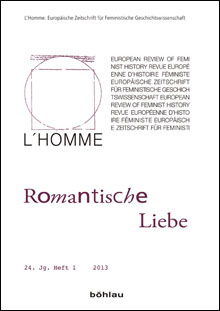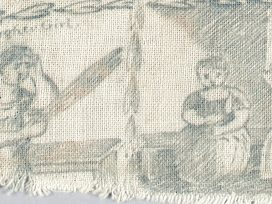
While book publishing is an ailing industry, children’s books are booming. But political attacks and censorship are also threatening this thriving sector.
As a journal of feminist history, one principle of L’Homme since its foundation has been to support historians in the field in as many ways as possible. Articles reflect the strength of German-speaking scholars, as well as the diversity of related topics throughout Europe.
L’Homme has one employee: a female editorial assistant, working part-time. The editor-in-chief in Vienna is also one of 16 members of the editorial board (from summer 2014 on, there will be 19 members), and all members of the editorial board (scholars from 8 European countries: Austria, Bulgaria, Czech Republic, France, Germany, The Netherlands, Poland and Switzerland) work voluntarily respectively in the context of their academic affiliation. A male university assistant in Vienna partly supports the production of the book review part of L’Homme.
The two issues of L’Homme published in 2012 (two issues, 340 pages altogether) contained articles by 40 female authors and four male authors. On average, in recent years, L’Homme contained articles by 21 authors per issue, of which between two and three were male authors.All 16 (19) members of the editorial board are female. Currently, there are 45 members of the advisory board, based in both Europe and America, of which 41 are female and four are male scholars.
Every issue of L’Homme features gender as a theme and approach per se. For example, the last issues were dedicated to reflections on “Romantic Love” (1/2013), Gender and Global History (2/2012), or prostitution (1/2010) from the perspective of women’s and gender history. Feminist history/women’s and gender history are themselves part of continuous reflection, e.g. in the special issue entitled “Geschlechtergeschichte, gegenwärtig” [Gender history today] (2/2007).
 Each issue is edited by two or three scholars and has a thematic focal point within the field of women’s and gender history to which normally three to four scientific essays respond (articles are written in German or, to a lesser degree, in English). Furthermore, there is one “open” article in every issue not dedicated to the theme, and there are sections containing shorter essays, reports about relevant archives, interviews, book reviews and comments on the current situation of women and of gender studies in different parts of Europe. The topics of upcoming issues are suggested and discussed at the annual meetings of the editorial board. L’Homme aims to connect current gender issues with historical contexts and is open to ongoing debates in the fields of work and social politics.
Each issue is edited by two or three scholars and has a thematic focal point within the field of women’s and gender history to which normally three to four scientific essays respond (articles are written in German or, to a lesser degree, in English). Furthermore, there is one “open” article in every issue not dedicated to the theme, and there are sections containing shorter essays, reports about relevant archives, interviews, book reviews and comments on the current situation of women and of gender studies in different parts of Europe. The topics of upcoming issues are suggested and discussed at the annual meetings of the editorial board. L’Homme aims to connect current gender issues with historical contexts and is open to ongoing debates in the fields of work and social politics.
The journal is peer-reviewed, internationally well-known and part of the European scientific community, showing the strength of German-speaking scholars in women’s and gender history, as well as the diversity of research topics in this field throughout Europe.
Many of the subscribers are institutions like libraries and universities so that there is no survey of data on the gender of subscribers available.
Published 14 November 2013
Original in English
First published by Eurozine
Contributed by L'Homme © Brigitte Semanek / Eurozine
PDF/PRINTSubscribe to know what’s worth thinking about.

While book publishing is an ailing industry, children’s books are booming. But political attacks and censorship are also threatening this thriving sector.

Being diagnosed with ADHD can be a relief for those who have struggled long and hard to adopt constraining social norms. For neurodivergent women, masking can lead to poor mental health, substance abuse and hyper-sexuality. Vox Feminae takes a first-hand dive into positive coping mechanisms for the inattentive and/or hyperactive.